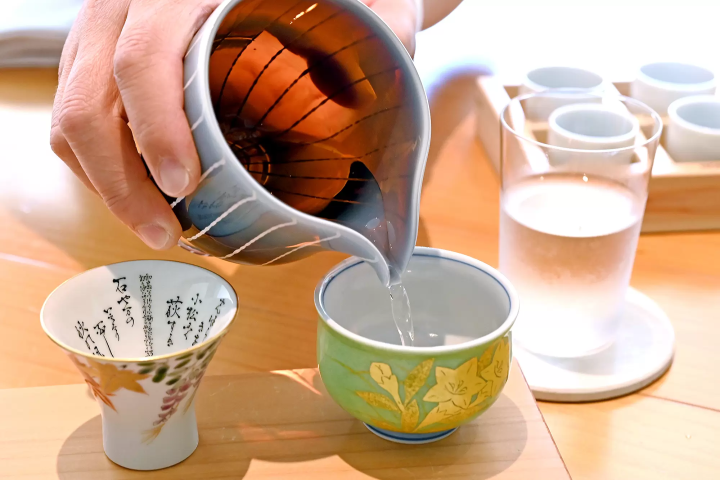[Kobe City] Experience making a dragonfly at the "KOBE Tonbotama Museum" exhibiting glass crafts
![[Kobe City] Experience making a dragonfly at the "KOBE Tonbotama Museum" exhibiting glass crafts](https://resources.matcha-jp.com/resize/720x2000/2023/12/20-158183.webp)
This museum exhibits approximately 2,000 glass crafts, including dragonfly beads, core glass, glasswork, and marble. Not only can you admire elaborate and beautiful crafts from ancient times to the present day, but even beginners can try their hand at making ``tonbotama''.
-
Table of Contents
- A permanent exhibition featuring the collections of ancient glass collectors and works by contemporary artists
- "Glass bead making experience" - create your own one-of-a-kind original goods
- Great value 1-day pass
- Access to the Kobe Glass Bead Museum
- basic information
A permanent exhibition featuring the collections of ancient glass collectors and works by contemporary artists

The Kobe Glass Bead Museum is a museum consisting of an exhibition room, a demonstration/experience workshop, and a museum shop, where visitors can enjoy "watching," "learning," "making," and "buying" glass crafts known as lampwork techniques.
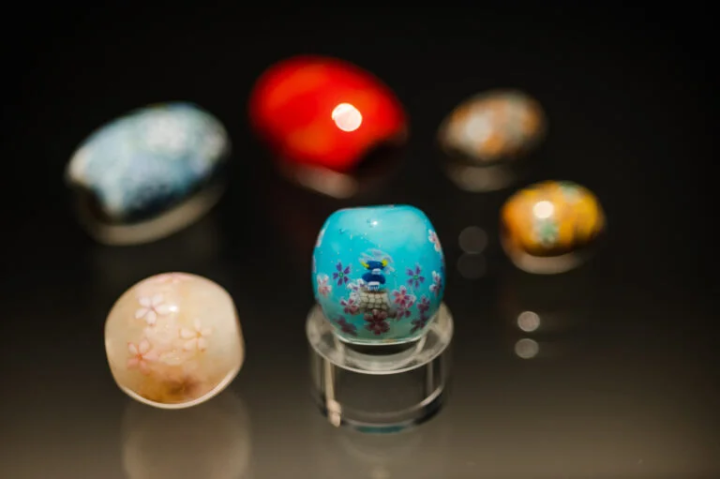
Tombodama are decorative glass beads with holes. In the Edo period, there were names for each pattern other than "Tonbodama," which resembles the compound eyes of a dragonfly, but today they are all collectively called "Tonbodama." In the past, glass was melted by the flame of a lamp, so they are made using a technique called lampwork.
At the Kobe Glass Bead Museum you can appreciate a variety of glass crafts made using the lampwork technique, including glass beads.
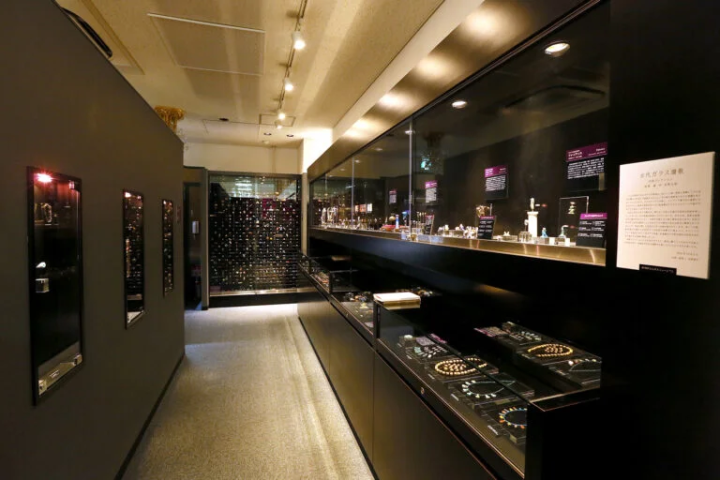
The exhibition room houses both permanent and special exhibitions, with approximately 2,000 glass crafts on display in chronological order, ranging from ancient glass to works by contemporary artists. The "Hymn to Ancient Glass" corner introduces the history of ancient glass.
The showcase displays the collection of Mr. Akinori Habara, one of Japan's leading collectors of ancient glass. Among them you can see precious pieces that were created over 3,500 years ago.
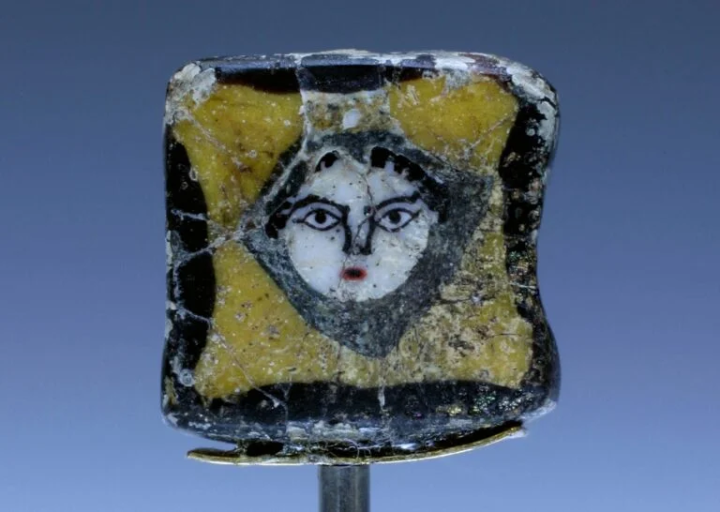
This is a "human face ball" made of mosaic glass in the same way as Kintaro candy. No matter where you cut it, the same pattern is created, and this method is an ancient glass craft technique.
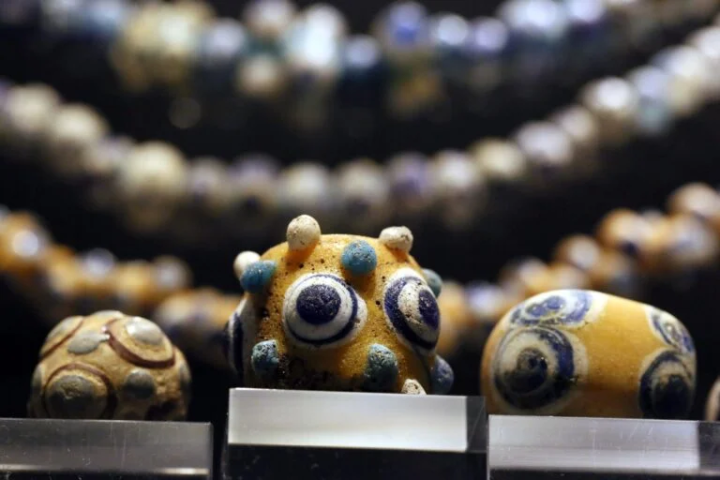

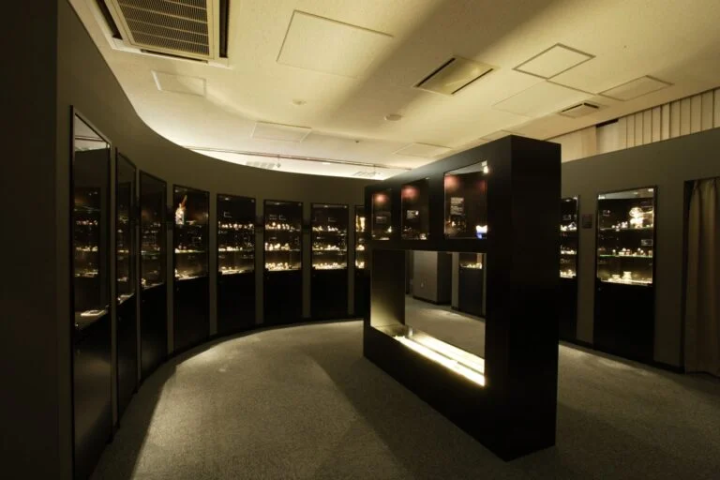
There are also many works by lampwork artists from Japan and abroad on display, making it a very interesting experience.
The works created through lampwork include a wide variety of items, including glass beads, core glass, glasswork, marble, paperweights, and glass pens.


![[Kobe City] Experience making a dragonfly at the "KOBE Tonbotama Museum" exhibiting glass crafts](https://resources.matcha-jp.com/resize/720x2000/2023/12/20-158193.webp)
The Kobe Glass Bead Museum holds special exhibitions four times a year. From Saturday, October 7, 2023 to Tuesday, January 9, 2024, an exhibition titled "Blooming Glass 2023" will be held, featuring glass crafts with flower motifs created using lampwork techniques.
"Glass bead making experience" - create your own one-of-a-kind original goods
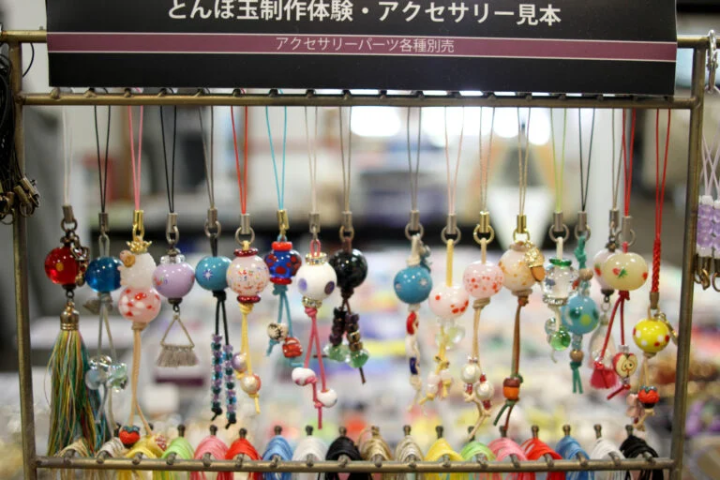
At the Kobe Glass Bead Museum, you can experience glass bead making. The experience involves choosing your favorite color and pattern, melting them with a burner, and creating a glass bead. Children in the third grade of elementary school or above can experience this experience alone. Children in the second grade or younger can experience making accessories using glass beads sold in the workshop.
![[Kobe City] Experience making a dragonfly at the "KOBE Tonbotama Museum" exhibiting glass crafts](https://resources.matcha-jp.com/resize/720x2000/2023/12/20-158195.webp)
The process of making glass beads starts with choosing the base color of the bead.
![[Kobe City] Experience making a dragonfly at the "KOBE Tonbotama Museum" exhibiting glass crafts](https://resources.matcha-jp.com/resize/720x2000/2023/12/20-158196.webp)
Next, choose a pattern from five types: powder balls, dot balls, part balls, glitter balls, and flower glass beads.
![[Kobe City] Experience making a dragonfly at the "KOBE Tonbotama Museum" exhibiting glass crafts](https://resources.matcha-jp.com/resize/720x2000/2023/12/20-158199.webp)
The glass rod is melted with a burner and the glass is shaped into a glass bead.
![[Kobe City] Experience making a dragonfly at the "KOBE Tonbotama Museum" exhibiting glass crafts](https://resources.matcha-jp.com/resize/720x2000/2023/12/20-158200.webp)
The molten glass is wound around a stainless steel rod core to create a pattern.
![[Kobe City] Experience making a dragonfly at the "KOBE Tonbotama Museum" exhibiting glass crafts](https://resources.matcha-jp.com/resize/720x2000/2023/12/20-158201.webp)
Once you have created a pattern, rotate the stick around to shape it.
![[Kobe City] Experience making a dragonfly at the "KOBE Tonbotama Museum" exhibiting glass crafts](https://resources.matcha-jp.com/resize/720x2000/2023/12/20-158202.webp)
After cooling the glass beads for about 40 to 50 minutes, they are finished. It's fun to wait and imagine what the finished product will look like. Even beginners can easily do it, so why not try the glass bead making experience?
![[Kobe City] Experience making a dragonfly at the "KOBE Tonbotama Museum" exhibiting glass crafts](https://resources.matcha-jp.com/resize/720x2000/2023/12/20-158203.webp)
The finished glass beads can be combined with separately sold accessory fittings and parts to create accessories and miscellaneous goods. There is a Toyotomi variety of parts available, so why not combine your favorite ones to create your own original goods that are one of a kind?
![[Kobe City] Experience making a dragonfly at the "KOBE Tonbotama Museum" exhibiting glass crafts](https://resources.matcha-jp.com/resize/720x2000/2023/12/20-158204.webp)
It takes about 10 minutes to make one glass bead, and 20 minutes to make two, plus 40 to 50 minutes to allow the glass beads to cool slowly. If you want to make the most of your time, we recommend trying out the glass bead making experience before viewing the exhibits or shopping at the museum shop.
Of course, you can also go outside to enjoy sightseeing in Kobe and then come back to pick up the artwork later.
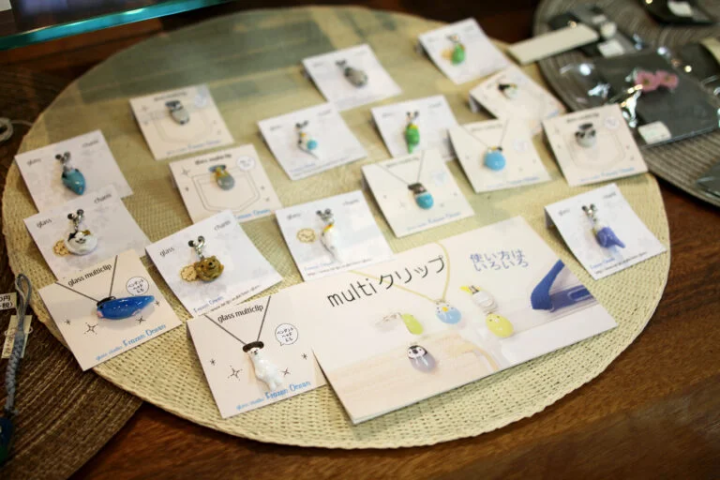
Glass bead making experience Reception hours: 10:00-18:00 Experience fee: 1,250 yen for one piece, 2,100 yen for two pieces *Admission fee not included Special features: Approximately 4,000 shots are launched, including star mines and fireworks, creating a spectacular sight!
Accessory making experience reception hours: 10:00-18:00 Experience fee: Glass beads of your choice (from 800 yen each) + cost of assembled parts *Entry fee not included
Great value 1-day pass
Kobe 1-day bus ticket
This bus ticket allows unlimited use of the City Loop and Port Loop buses that run within Kobe City for 700 yen per day. If you're planning on touring Kobe 's tourist sites, use this ticket for an easy and comfortable trip.
Hyogo Amazing Pass
If you are considering touring around Himeji and Hyogo prefecture in addition to Kobe , we recommend this ticket! This mobile ticket includes the contents of the Kobe 1-day bus ticket and allows unlimited rides on Shinki Bus route buses for 1,000 yen per day. *Limited to foreign visitors tourists visiting Japan
Access to the Kobe Glass Bead Museum
The Kobe Glass Bead Museum is an 8-minute walk from Sannomiya Station or Motomachi Station. It is also a special attraction for those who have a one-day pass for the City Loop, which takes about 65 minutes to visit the tourist spots in Kobe Kobe, or the Port Loop, an articulated bus that travels around the port area of Kobe . If you show your one-day pass, you can receive a 25% discount on the admission fee.
If you use the "City Loop", it is about a 2-minute walk from "Kyukyoryuchi (City Museum)" and "Kyomachisuji". Both buses are convenient for sightseeing in Kobe as they are sightseeing buses that go around the main tourist spots of Kobe . Information on how to ride the bus, the bus stop, and special offers are available on the website.
![[Kobe City] Experience making a dragonfly at the "KOBE Tonbotama Museum" exhibiting glass crafts](https://resources.matcha-jp.com/resize/720x2000/2023/12/20-158206.webp)
The Kobe Glass Bead Museum has pamphlets available in English. There are also explanation boards written in English when making glass beads, so you can rest assured. There are many foreign visitors tourists visiting the museum, so there are staff members who can speak basic English.
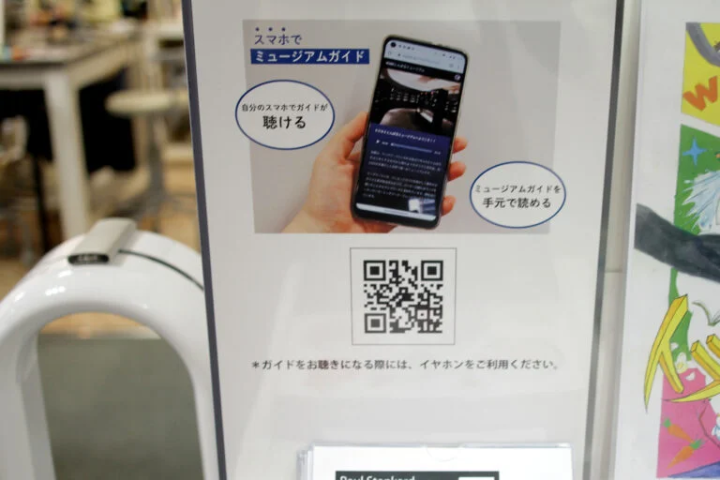
Glass has a very long history, and some of the exhibits at the Kobe Glass Bead Museum are over 3,500 years old. Take your time exploring the museum and think about the evolution of glass crafts, which have taken on a variety of different expressions over the ages.
Every January, the Kobe Glass Bead Museum holds the "1.17 Light of Hope Glass Bead Making Experience." The thoughts behind the event are introduced in the article below, so be sure to check it out.
Related article: The Kobe Glass Bead Museum passes on memories of the Great Awaji Earthquake
(Writer: Nakata/West Plan)
*This article is current as of November 2023. Prices include tax. Product contents and prices may change. Please check the official website for the latest information.
basic information
Kobe Glass Bead Museum
Address: 2nd floor, Nippon Building, 79 Kyomachi , Chuo Ward , Kobe City Hyogo Prefecture
Phone number: 078-393-8500
Business hours: 10:00-19:00 (last entry 18:45)
Admission fee: Adults 400 yen, elementary and junior high school students 200 yen
Closed: New Year's holiday, December 31st to January 2nd
Access: 8 minutes on foot from Sannomiya Station or Motomachi Station on all lines; 2 minutes on foot from the City Loop bus stop "Kyomachisuji" or "Kyukyoryuchi (City Museum)"
Parking: None
HP: https://www.lampwork-museum.com/
Social Media: Instagram
What are good things and good experiences? There are many characteristics such as having a story to tell, overflowing with the thoughts of the creator, having a history, and being loved by the locals. Have you ever come across a special thing or experience that made you want to tell someone about it? And as a result of telling, someone new leads to something. We think that's what "good" is all about. In order to deliver such encounters to our customers, we discover Hyogo's good things based on the concept of "talk, communicate, and connect", and provide information that will shorten the emotional distance between customers and the region of Hyogo Prefecture.
The contents on this page may partially contain automatic translation.


![[Kobe City] A one-day bus ticket is a great deal if you want to visit Kitano Ijinkan-gai, Nankin-cho, and other famous spots in Kobe!](https://resources.matcha-jp.com/resize/200x2000/2023/09/25-146866.webp)
![[Hyogo Prefecture] Unlimited rides on local buses for just 2,500 yen! Travel around Hyogo Prefecture at a great price](https://resources.matcha-jp.com/resize/200x2000/2023/09/25-146913.webp)





























![[Kagoshima] Enjoy Minamisatsuma City to the Fullest! A Guide to the Scenic Beauty and Culture of Five Areas](https://resources.matcha-jp.com/resize/720x2000/2026/02/15-258755.webp)

![[Yufuin]Yufuin in 100 Minutes: Quick Access Guide](https://resources.matcha-jp.com/resize/720x2000/2026/02/15-258738.webp)
![[Shinjuku Nishiguchi HALC] About the d Point Campaign](https://resources.matcha-jp.com/resize/720x2000/2026/02/14-258714.webp)
